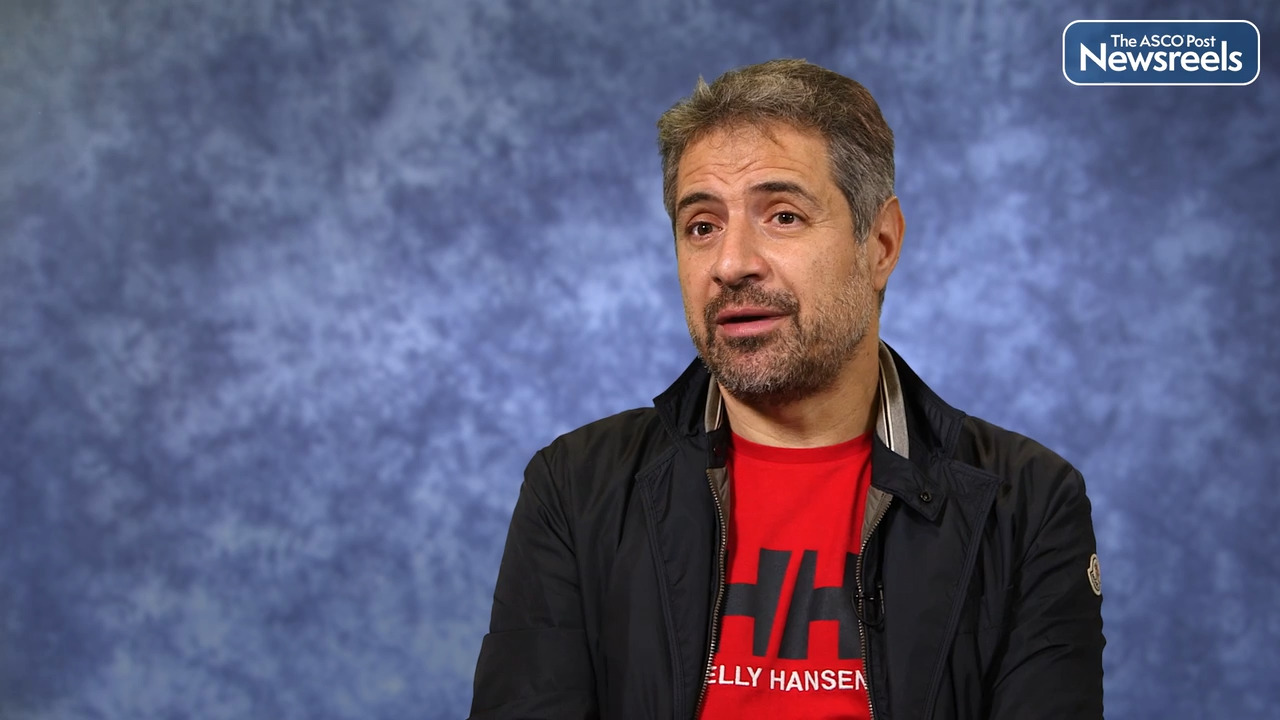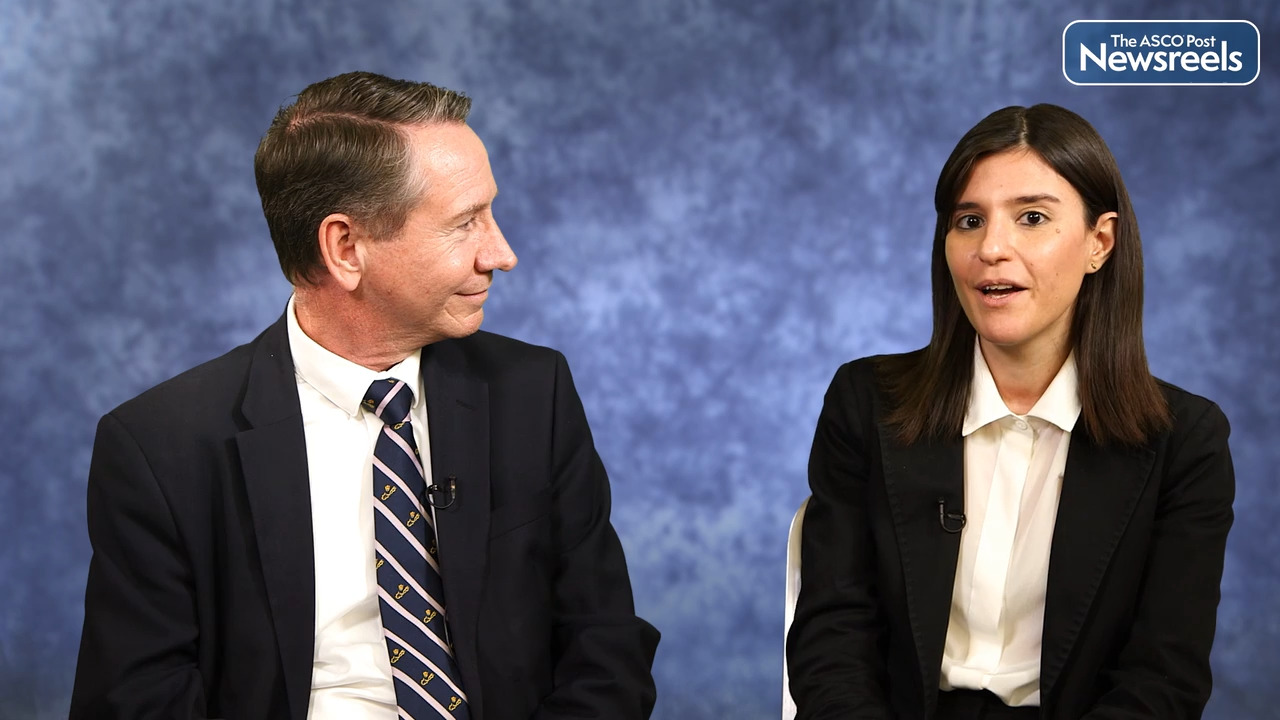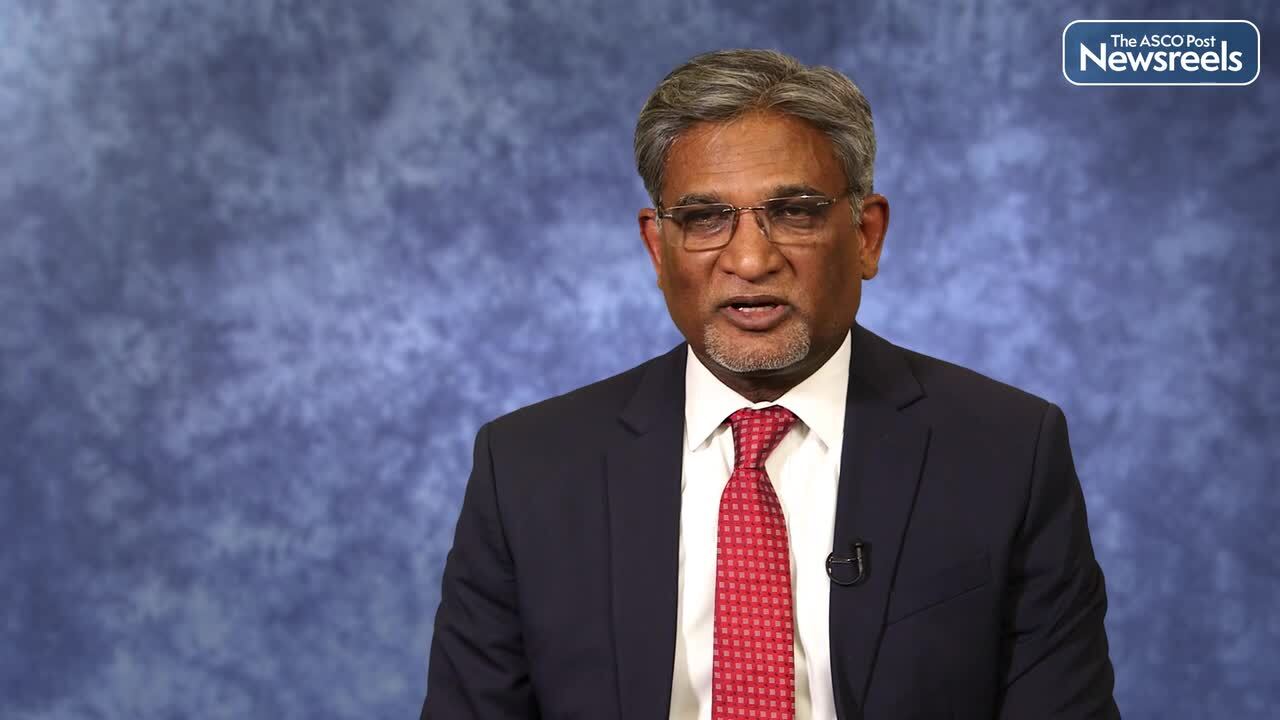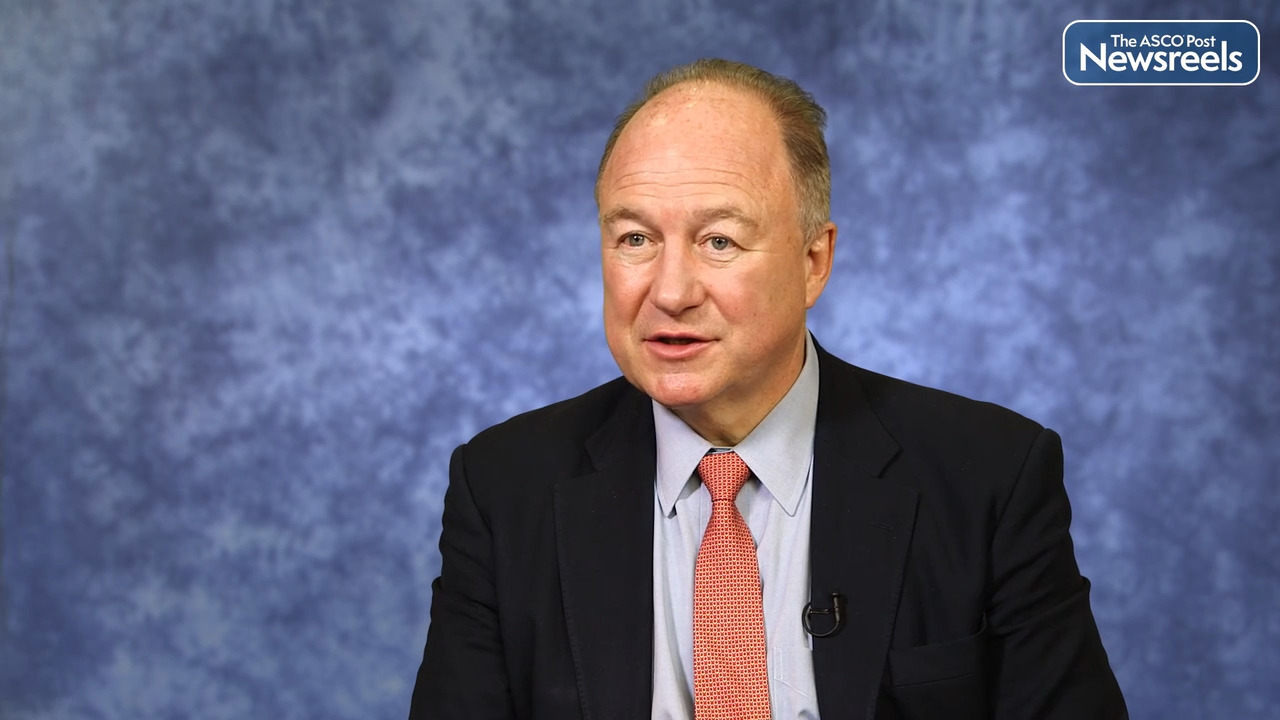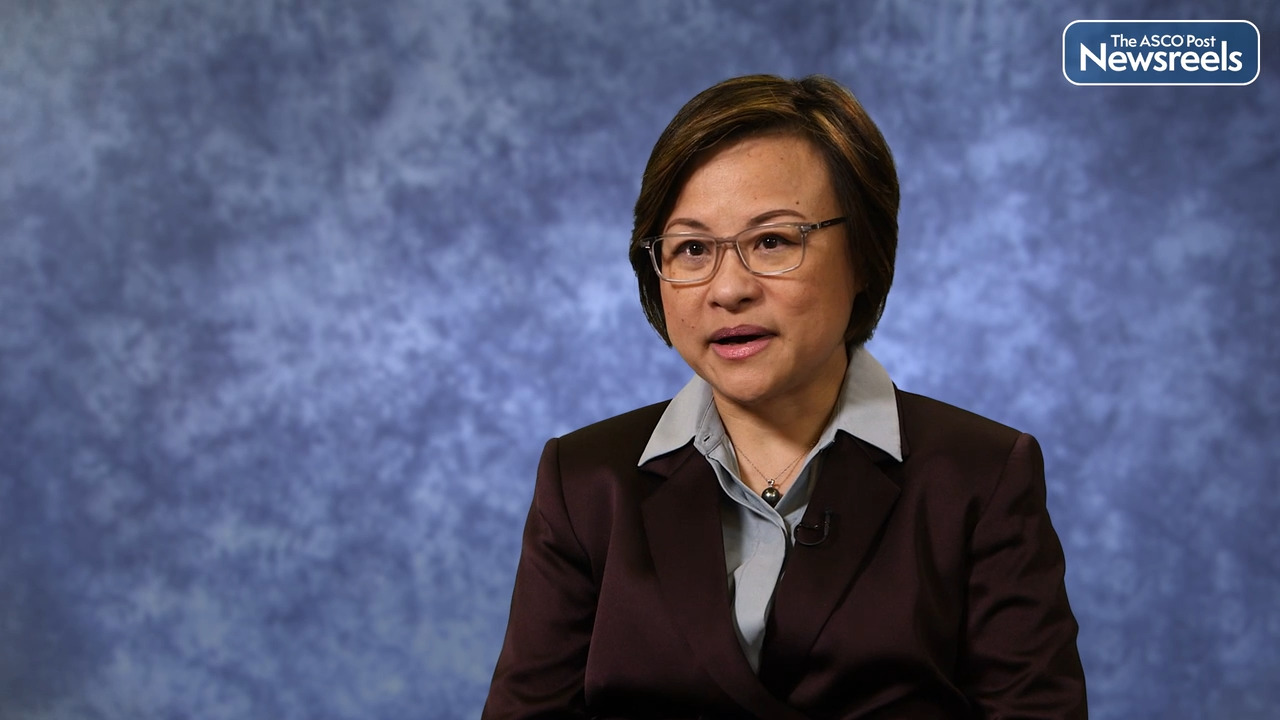Transcript
Disclaimer: This video transcript has not been proofread or edited and may contain errors.
Historically, relapsed refractory mantle cell lymphoma has poor outcomes, especially those who are previously exposed to a BTK inhibitor. We have seen some changes in the landscape with the introduction of brexucabtagene autoleucel, which is sometimes hampered by toxicity and logistical challenges. Glofitamab is a bispecific antibody targeting CD20 and CD3 with two CD20 binding epitopes, which potentially provides a bit more potency compared to some of the other bispecific antibodies on the market.
We previously presented data demonstrating the efficacy of this and acceptable mitigation strategy for CRS with step-up dosing. Additionally, in this study, we evaluated different pre-treatment doses of obinutuzumab, due to the competitive receptor occupancy binding of obinutuzumab and glofitamab, reducing further the risk of CRS, as well as with its rapid clearance not necessarily impacting clinical efficacy.
In this study, we started off with obinutuzumab be either one or two grams on cycle one, day one, followed by glofitamab of cycle one, day eight at 2.5 milligrams; cycle one, day 15 at 10 milligrams; and cycle two, day one at 30 milligrams. Thereafter, glofitamab was given every three weeks at the 30 milligram dose for a total of 12 cycles.
In this study, we enrolled patients with relapse refractory mantle cell lymphoma who received a median of three prior lines of therapy. Majority of the patients on the study were male patients, majority of the patients had advanced stage disease, a third of the patients had high risk MIPI, two thirds of the patients had prior exposure to a BTK inhibitor, and the majority of the patients were refractory to last line of therapy.
In this study, what we saw was still high overall efficacy irrespective of the dose of obinutuzumab given as a pre-treatment, and this also correlated in the BTK refractory or exposed patient population. What we did also see is there was a higher overall response rate in those who received two grams of obinutuzumab and this also correlated into the BTK exposed patient population.
If we look at duration of response, the duration of response on this study is a bit short compared to what we would see with the data with brexucabtagene autoleucel, but with a median follow up of a little less than a year we do see some durability of responses. We see some patients remain in remission even off of therapy, thus indicating that there's potentially for some durability of this treatment.
If we look at patients with a complete remission, we see that 20 of 27 patients who obtained complete remission, still remain in remission on study. If we exclude four patients who came off treatment with CAR-T infections, we have 20 of 23 patients with a median duration of response not reached, indicating that there is substantial durability potential in this treatment response. Also, of note, all the patients who've completed 12 cycles of therapy have not yet have progressed on treatment at this current time.
If we dive into the adverse events, the most common adverse event on treatment is cytokine release syndrome as we see the majority of our patients. The good thing with this treatment is we see the majority of this CRS events are grade one and grade two. We do have a scattered few of grade three and grade four CRS events. Some of the other events of note are neutropenia, tumor flare, elevation of AST and anemia, as well as we have a few neurological events that we will discuss later.
Diving in deeper into the cytokine release syndrome, we see a lower percentage and frequency of CRS events with a two gram of obinutuzumab pre-treatment and there were no grade four CRS events noted with the two gram of obinutuzumab pre-treatment. All TRS events resolved on study treatment and none of these CRS events led to discontinuation irrespective of the amount of obinutuzumab given, whether it was one or two grams.
If we dive into neurological complications, especially ICANS, there were five ICANS events on the study. Four which occurred in the one gram obinutuzumab pre-treatment and the one that occurred in the two gram obinutuzumab pre-treatment group was a great one ICANS event and did resolve on treatment.
The other issues that we discussed are infection because of how this treatment works, we did see upper respiratory infection and some other infections specifically with COVID-19. There, specifically, were four COVID-19 related events and deaths on study treatment. One occurred after the adverse event reporting program, but overall, these necessarily did not lead to any sort of substantial impact or efficacy into what we see in this study treatment.
Moving forward, we see that glofitamab monotherapy with obinutuzumab pre-treatment was effective in this patient population of relapsed refractory mantled cell lymphoma patients. As of today, the plan is to move forward with a randomized phase three study to get a better idea of the sense of efficacy, duration of response, and how this treatment responds in certain patient characteristics, which we will not able to collect on this study versus the standard of care. We will all look forward to seeing how this study plays out and where the glofitamab slots in in the treatment algorithm for patients with relapse refractory mantle cell lymphoma.
